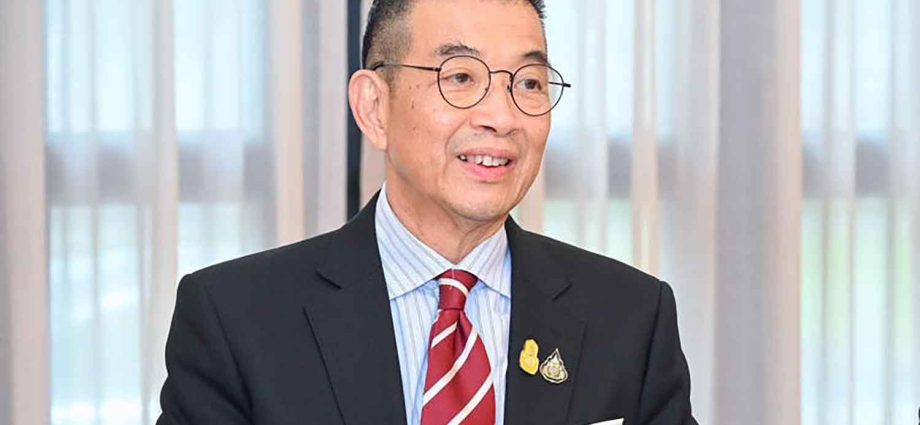
Thailand wants Asean to improve integration efforts by adopting a common digital economy system, supporting sustainable development and ensuring security in the region through existing mechanisms.
In his speech at the 57th Asean Ministerial Meeting in the Lao capital of Vientiane on Thursday, Foreign Affairs Minister Maris Sangiampongsa said that many countries and international organisations have shown interest in furthering their engagement with the bloc.
He said this information was relayed to him by his Lao counterpart Saleumxay Kommasith.
Therefore, Asean should come together and boost economic and security integration among members, he said.
“It is important for Asean to get really close [to each other] because while Asean members are different in governance, race and ethnicity, those differences had laid a strong foundation for this region and none of the regional groups could have a strong foundation like us — the unity on differences,” he said.
“Therefore, we need to come together as a unified Asean and show our true potential,” he added.
“We need to strengthen our collaboration within the region while adapting to global changes.”
To foster higher integration, Thailand proposed three ideas that the bloc could adopt.
First, Asean should boost economic integration by upgrading the region’s digital connectivity, he said. One example of this is Thailand’s push for the Asean Digital Economy Framework Agreement, which aims to promote connectivity via digital technologies, he said.
He pointed out that cross-border transactions between Thailand’s PromptPay and Singapore’s PayNow have shown the potential of digital technologies.
PromptPay is a payment service which allows users to pay for goods or services by scanning a QR code via a mobile banking application, he said.
“Such collaboration should be the model for Asean to follow,” Mr Maris added.
He also pointed out that people-to-people connectivity contributes to economic integration. He suggested that there be more flights between Asean countries for mutual benefits.
“I also suggested that Asean should have a longer visa period, and that could help to boost the local economy,” he added.
Second, as Thailand has been working on sustainable development, Mr Maris said, Thailand would like to see an Asean Outlook on the Indo-Pacific forum, especially if it can drive the bloc towards achieving UN sustainable development goals by 2030.
Such a platform will help Asean meet regional sustainable development goals together, he said.
Lastly, he said that Asean should work together on security through the Treaty of Amity and Cooperation in Southeast Asia, a legally binding code, to ensure peace and stability in the region.
Currently, about 50 countries have joined this treaty, he said.
Asean countries should work together to fight transnational crimes through existing mechanisms, such as the Asean Narcotics Cooperation Centre and Asean Working Group on Anti-Online Scams, he said.
“Using the existing mechanisms will help Asean solve transnational crime more effectively,” he added.

